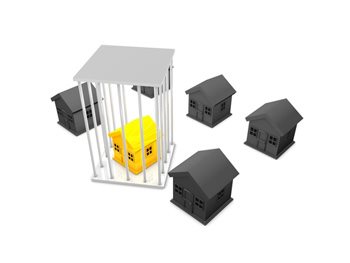When To Avoid Foreclosure
Theforeclosing of a propertyis classified as an act of financial restitution on the part of the owner of the outstanding mortgage or home load – also known as thelender. Foreclosures occurwhen an individual borrower becomes unable or unwilling to satisfy compensatoryrequirement(s)expressed in the terms agreed upon subsequent to the approval of the loan in question. However, prior to the foreclosing of a property, there exist many avenues in which an individual may be able to avoid foreclosure.
The Decision to Avoid Foreclosure
In the event that an individual finds themselves in a situation in which the foreclosure of a property might take place, they will be responsible for the decision of choosing between a desire to take measures to avoid foreclosure or accept it. Typically, many individuals feel as though the opportunity to avoid foreclosure is preferable, instances exist in which foreclosure might be the best option. The following are some factors to be taken into consideration:
When to Avoid Foreclosure
In the event that:
1. An individual has the opportunity to receive a supplemental loan in order to facilitate the satisfaction of the preexisting mortgage or home loan. Supplemental loans should only be considered if the individual borrower in question can ensure repayment of both loans to their fullest extent.
2. An individual is in good standing with the lending financial institution and has undergone extenuating circumstances, which has placed them in the current financial hardship. If an individual has displayed prompt payment(s) and financial responsibility, they might be in consideration for additional opportunities to avoid foreclosure.
3. An individual wishes to own, buy, or sell property in the future; as a result of foreclosure, the prospect of receiving a mortgage, home, or property loan is a difficult one – a foreclosure can remain on an individual’s financial record(s) for a prolonged duration of time.
4. Mortgage refinancingretains the ability to allow an individual the opportunity to avoid foreclosure upon reworking the terms of an existing mortgage. The renegotiatingof the terms of a mortgage may be an available option in the event that neither the lender nor the borrow wishes to engage in the foreclosure process. The application for a second mortgage grantsan individual to obtain funding borrowed against a preexisting mortgage loan.
When to Forgo Measures to Avoid Foreclosure
In the event that:
1. An individual cannot receive supplemental loans in order to satisfy an outstanding loan and is prepared to accept the financial restitution of the foreclosure.
2. The value of an individual’s debt outweighs that of any and all assets, monies, liquidity, equity, and possessions.
3. A credit counselor and/or legal professional have recommended that measures taken to avoid foreclosure are not in the best interest of the individual borrower.
Potential Options in order to Avoid Foreclosure
The parameters and protocols surrounding potential and preventative measures taken in order to avoid foreclosure vary on an individual basis and in conjunction with the borrower’s respective financial state of affairs, outstanding debt, and current financial state of the home or mortgage loan in question; participation in all foreclosure assessment should take place with full cooperation - in a meticulous fashion. In the event that an individual experiences difficulty understanding the circumstances resulting from the desire to avoid foreclosure, they are encouraged to consult an attorney specializing in real estate, property, finance, debt, collections, and contracts.
